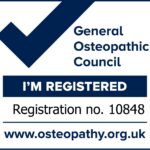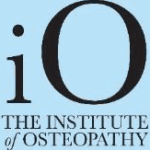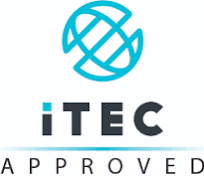Rotator cuff injuries are a common cause of shoulder pain, affecting the tendons and muscles surrounding the shoulder joint. These injuries can range from mild sprains and strains to partial or complete tears. This blog explores the causes, symptoms, pain management protocols, and how MG Osteopathy can help in recovery.
Rotator Cuff Injuries: Sprain, Strain, and Tear key differences
- Sprain: A sprain indicates ligament involvement of the structures surrounding the rotator cuff, they are stretched or partially torn, typically due to sudden movement or trauma.
- Strain: A strain affects the tendons or muscles, often caused by overuse, repetitive movements, or lifting something too heavy.
- Tear: A tear can be partial or full-thickness, where the tendon is completely torn. This results from trauma, degenerative changes, or chronic overuse.
Common Causes
- Overuse: Repetitive overhead activities (e.g., swimming, tennis, or painting) can strain the rotator cuff muscles and tendons.
- Trauma: A sudden fall or lifting something too heavy can cause a tear or sprain.
- Aging: In some cases, the natural process of wear and tear can make the rotator cuff structures more susceptible to injury.
- Poor Posture: Rounded shoulders or poor shoulder alignment can lead to chronic strain on the rotator cuff.
Signs and Symptoms
- Sprain:
- Pain in the shoulder, usually triggered by movement
- Tenderness
- Difficulty raising the arm, or reaching behind the back
- Strain:
- Aching pain, then often sharp pain with movement
- Pain and possible weakness when moving the arm
- Possible and limited range of motion
- Tear:
- More severe, constant pain, often pain persists at night too.
- Weakness or total inability to lift the arm/ rotate the arm
- Bruising or redness
Pain Management Protocols
- Rest and Activity Modification: Avoid activities that worsen symptoms temporarily until the therapist gives the ok to begin to return to these.
- Medications:
- NSAIDs: Over-the-counter options for pain and inflammation.E.g. paracetamol, ibuprofen.
- Corticosteroid Injections: In more severe cases to reduce inflammation.
- Rehab Exercises: Tailored exercises e.g. strengthening of rotator cuff muscles, and back muscles, and help regain usual mobility.
- Heat and Cold Therapy:
- Cold Therapy: For inflammation relief (apply for 5-10 minutes).
- Heat Therapy: To relax muscles and improve blood flow.
- Osteopathic treatment: Manual therapy aiming to help with pain relief and improve function.
- Surgical management: Surgery may be considered in rarer cases where injury is more severe.
What is Osteopathy?
Osteopathy is a holistic approach to healthcare that focuses on the body’s musculoskeletal system. Osteopaths use manual techniques to improve the function of joints, muscles, and tissues, promoting natural healing and overall well-being. This hands-on approach emphasizes the connection between the body’s structure and its function, aiming to restore balance and alleviate pain.
How MG Osteopathy Can Help
At MG Osteopathy, we offer a holistic approach to treating cervical disc issues:
- Assessment: Comprehensive evaluations of your symptoms and posture.
- Manual Therapy: Gentle adjustments and soft tissue techniques to help manage pain and improve function.
- Exercise Programs: Tailored exercises to strengthen the shoulder
- Lifestyle Advice: Tips for minimising strain during daily activities.
Conclusion
Shoulder injuries / Rotator Cuff, whether they involve sprains, strains, or tears, can severely impact shoulder function and quality of life. Early diagnosis and appropriate osteopathy treatment are crucial for effective recovery. If you’re experiencing shoulder pain or limited movement, MG Osteopathy can provide a personalised treatment plan to support your recovery and restore shoulder strength and flexibility.




